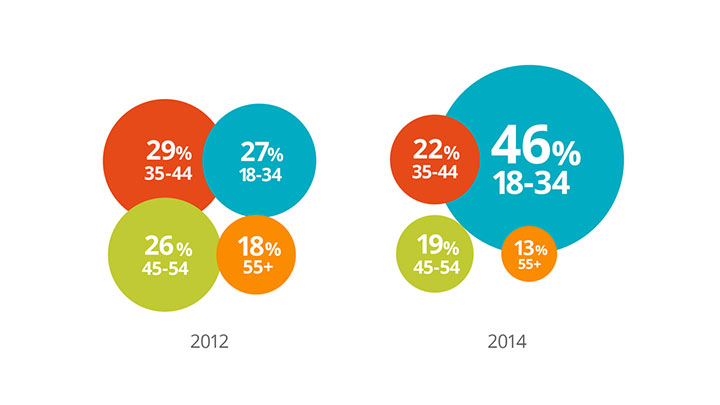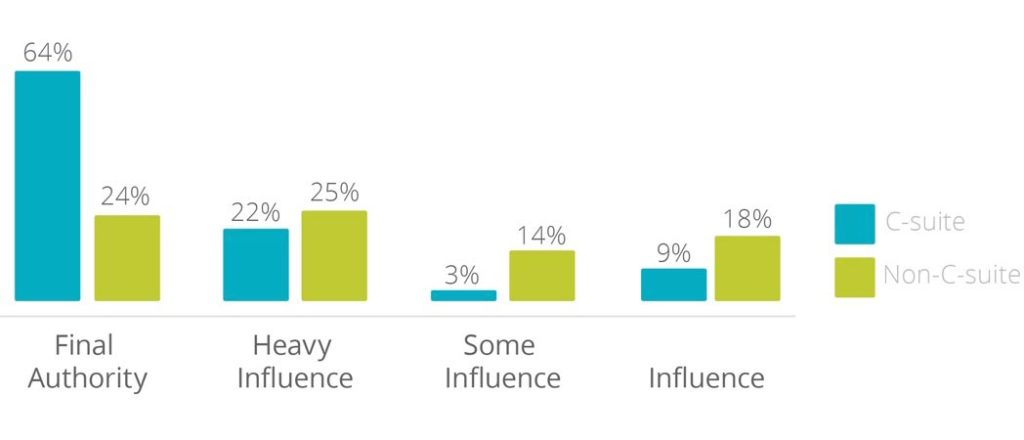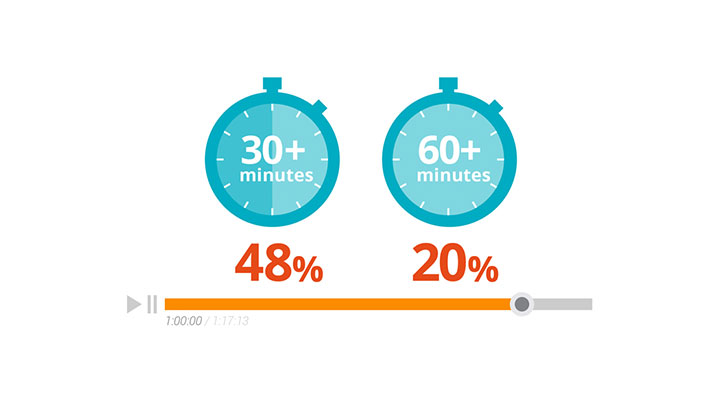This is an archived article and contains information that has not been updated or reviewed since it was originally published. For more information regarding the content in this article, please contact us.

The rapidly changing digital landscape and the ubiquitous use of mobile devices means that digital marketing for businesses is changing rapidly. The easy availability of information and ability to communicate in a variety of formats means some interesting shifts not just in how B2B buying decisions are happening, but also in who’s responsible for them. Our B2B clients often target their marketing efforts at the C-suite, often ignoring other members of the organization that may be integral in decision making. But as the journey to purchase changes in response to mobile devices and shifting user behaviour, B2B companies need to be ready to change their traditional marketing approaches.
1. Demographics Are Changing
In 2012, online research was conducted evenly by most age groups. By 2014, 18 to 34-year-olds accounted for almost half of online researchers; an increase of 70%. As millennials represent a higher proportion of the workforce, your approach to B2B will need to shift. This generation has never known a world without the internet – ignore this at your own peril. Your digital marketing strategy has to take into account the millennial worker’s familiarity with digital and how this influences the kind of content and media channels they are using for consumer research.

2. You may be missing the most important part of the decision-making process
B2B marketing strategies typically focus exclusively on the C-suite or other senior-level executives, but the ecosystem of influencers around the B2B research process has changed—dramatically.
- 81% of non-C-suiters have a say in purchase decisions. Clearly, if you’re marketing only to the highest level, you’re overlooking the people who need to notice you.

3. Your online sales funnel probably starts too late
Many B2B campaigns focus on branded search. But about 71% start on a generic query, so they’re looking for product first, not for your business. Research shows that those involved in the B2B buying process are already 57% of the way down the path to a decision before they’ll actually perform an action on your website. On average there are 12 searches before any web engagement.
4. The “My customers don’t use mobile” myth
49% of B2B researchers who use their mobile devices for product research do so while at work. They’re comparing prices, reading about products, comparing feature sets, and contacting retailers. Considering the amount of time they’re spending on their smartphones, it’s important that you provide them with rich mobile experiences
- 42% of researchers use a mobile device during the B2B purchasing process – a 91% growth in 2 years and a 3X growth in mobile queries!
5. You’re Ignoring Video
Video is not only suitable for raising brand awareness, researchers watch video during the entire path to purchase. Nearly half of the researchers using video are viewing 30 minutes or more of B2B-related videos during their research process, and almost one in five watch over an hour of content. Videos about product features top the list, followed by how-to videos and professional reviews. You need to be producing video content that helps your potential customers learn about, compare, and research their B2B purchases.
- 70% of B2B buyers and researchers are watching videos throughout their path to purchase.

What do to?
The most important thing to be thinking about is whether or not you’re marketing to the changing online audience. B2B influencers are likely younger than you expect, and you need to make sure you’re reaching them where they are and providing them with the content they’re seeking. To do this you need to ramp up the intensity in your search, mobile, and video efforts. Delivering content-rich mobile and video experiences is now critical to successfully reaching your B2B customers and moving them through the path to purchase.
Learn how to keep your digital marketing strategy at pace with change and market your B2B business online.



